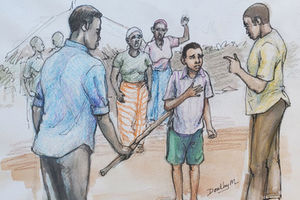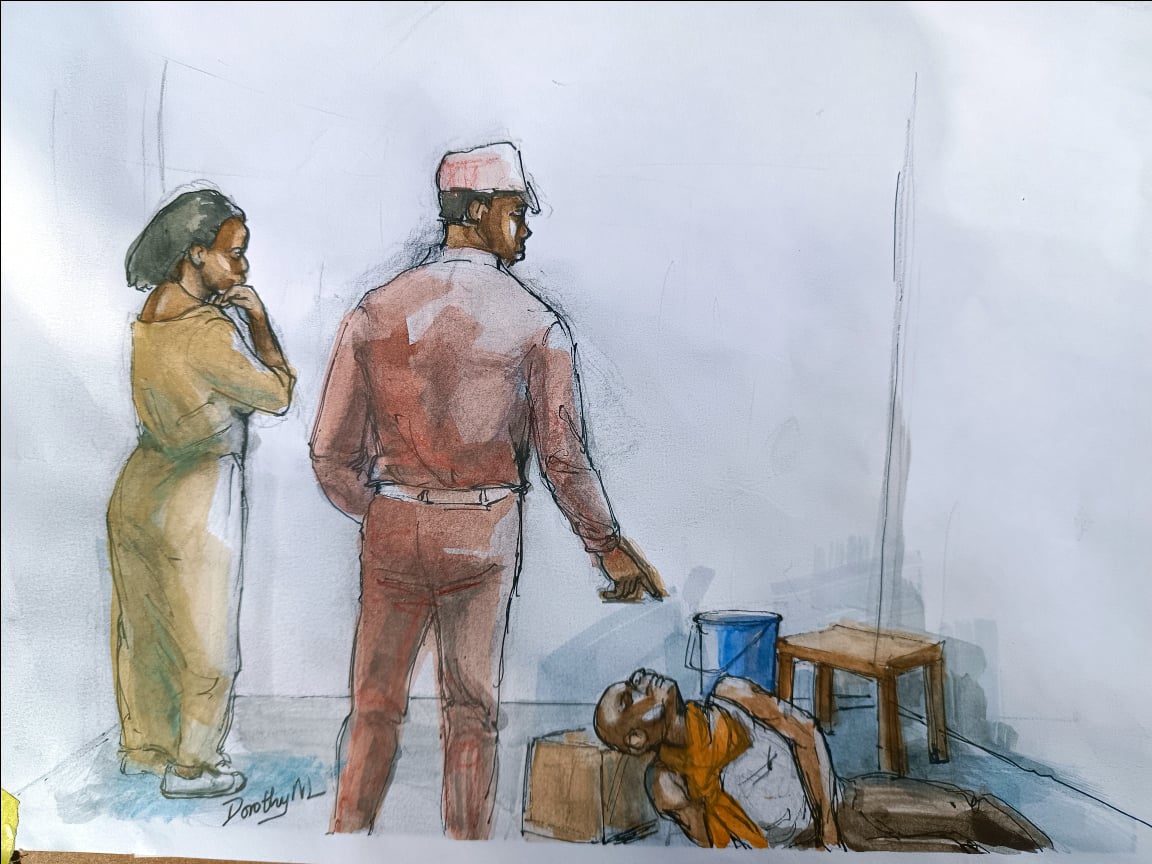
The forensic postmortem examination is very important in establishing some of the ingredients of the offence of murder to the pre-requisite standard of “beyond reasonable doubt”. Apart from confirming the fact of death, the postmortem examination, in most cases, will establish if the death was unlawful by assessing the cause of death. A postmortem examination is the gold standard of establishing the cause of death. Courts have many a times used the findings of a postmortem examination to infer malice aforethought. Scientific investigations such as DNA analysis, have also been used to irrefutably link an accused person to a death that is subject to judicial interrogation.
On 24th June 2013, a one Abdullahi alias Arab of Somali origin killed his friend and kinsman Abdaifatah. Arab was subsequently charged and tried for the murder of his friend and witnesses were called upon to testify and the trial concluded. However, pending judgment, the accused asked court to grant him and the family of the deceased time to reconcile and settle the matter out of court. The two parties had signed an agreement and wished court to allow the agreement to stand in lieu of the judgment.
In a similar case where an accused person was facing murder charges, the families of the accused and the deceased reached a settlement after some compensation was made and rituals conducted. The family of the deceased informed the prosecution by a letter that they did not wish to pursue the matter. The prosecution made an oral application to have the matter marked as settled citing the relevant laws and the Affidavit of the father of the deceased. The court proceeded to allow the application for withdrawal, citing the powers of the Director of Public Prosecutions to discontinue proceedings.
In the murder case of Abdullahi the application for the out of court settlement was filed by the lawyer for the accused person citing various articles of the Constitution that encouraged plea bargaining. The lawyer told court that notwithstanding the pending judgment, the two parties were negotiating and seeking an out of court settlement in accordance with the Somali culture, law and religion. It was also the wish of the complainants to settle the matter out of court as they had already signed an agreement and reconciled and felt that the agreement ensured justice for them and the community.
The accused had been in custody for three years and the lawyer told court that he had learnt his lesson and was remorseful for the offence. The accused was a young man and if given time, there were high chances he would change his life and move in a different direction. The accused was also an orphan. The State Attorney however, opposed the application. To the State Attorney the law was clear on how murder cases should be handled and it was for that reason that the case was before court. The State Attorney argued that a life was lost and no amount of reconciliation would bring back that life. While acknowledging the good gesture and efforts of the two families to reconcile, the State Attorney emphasized that all criminal cases are instituted and prosecuted in the name of the state and not that of the family and court, therefore, needed to proceed with the case to its logical conclusion.
The lawyer for the accused, in reply, submitted that negotiation is not only traditional but human and is grounded in the law of natural justice and the Constitution. To the lawyer the request made by the families was not repugnant to any written law and, further, it was only just that the rights of both the accused and the deceased be considered.
Court noted that alternative forms of dispute resolution are provided for in the Constitution where it is stated that alternative forms of dispute including reconciliation, mediation, arbitration and traditional dispute resolutions shall be promoted so long as these do not contravene the Constitution and the Bill of Rights and are not repugnant to justice and morality or results in outcomes that are repugnant to justice or morality.
The law also states that the High Court, the Court of Appeal and all subordinate courts shall be guided by African customary law in civil cases in which one or more parties is subjected to it or affected by it, so far as it is applicable and is not repugnant to justice and morality or inconsistent with any written law, and shall decide such cases according to substantial justice without undue regard to technicalities of procedure and without undue delay.
And in criminal cases the law states that the court may promote reconciliation and encourage and facilitate the settlement in an amicable way of proceedings for common assault, or for any other offence of a personal or private nature not amounting to felony, and not aggravated in degree, on terms of payment of compensation or other terms approved by court, and may, thereupon, order the proceedings to be stayed or terminated.
To court it was evident that the application of alternative dispute mechanisms in criminal proceedings was intended to be very limited. The law only envisages the use of the African customary law in dispute resolution only in civil cases that affect one or more parties that is subject to the particular customary law. It is also evident that where the alternative dispute resolutions are to be used in criminal matters it is limited to misdemeanors and not felonies.
To court the accused had been charged with the offence of murder, which is a felony and therefore among the crimes that the law prohibits the courts from adopting reconciliation as a form of justice. One judge once made a ruling in a similar case, and stated “To the best of my knowledge, other than in cases of minor assault in which court can promote reconciliation and such minor cases, a complainant is not allowed to withdraw a criminal case for whatsoever reason. In any case the real complainant in all criminal cases, and especially so felonies, is the state. The victims of such crimes are nominal complainants. And the state, as the complainant, cannot be allowed to withdraw any such case because the victim has forgiven the accused as happened in this case or any such other reason. The state can only be allowed to withdraw a criminal case or enter a nolle prosequi when it has no evidence against the accused or on some ground of public interest. And this can only happen when the state has convinced court that the case should be withdrawn. To allow withdrawals of criminal cases like this is tantamount to saying that relatives of murdered persons can be allowed to withdraw murder charges against accused persons whom they have forgiven. That cannot be allowed in the judicial system.”
To court the ruling of the judge was applicable in the instant case where the family of the deceased person was seeking to withdraw the case on account of a signed agreement of reconciliation, which should not be allowed unless the prosecution was involved.
What Law States
And in criminal cases the law states that the court may promote reconciliation and encourage and facilitate the settlement in an amicable way of proceedings for common assault, or for any other offence of a personal or private nature not amounting to felony, and not aggravated in degree, on terms of payment of compensation or other terms approved by court, and may, thereupon, order the proceedings to be stayed or terminated.
To be continued








